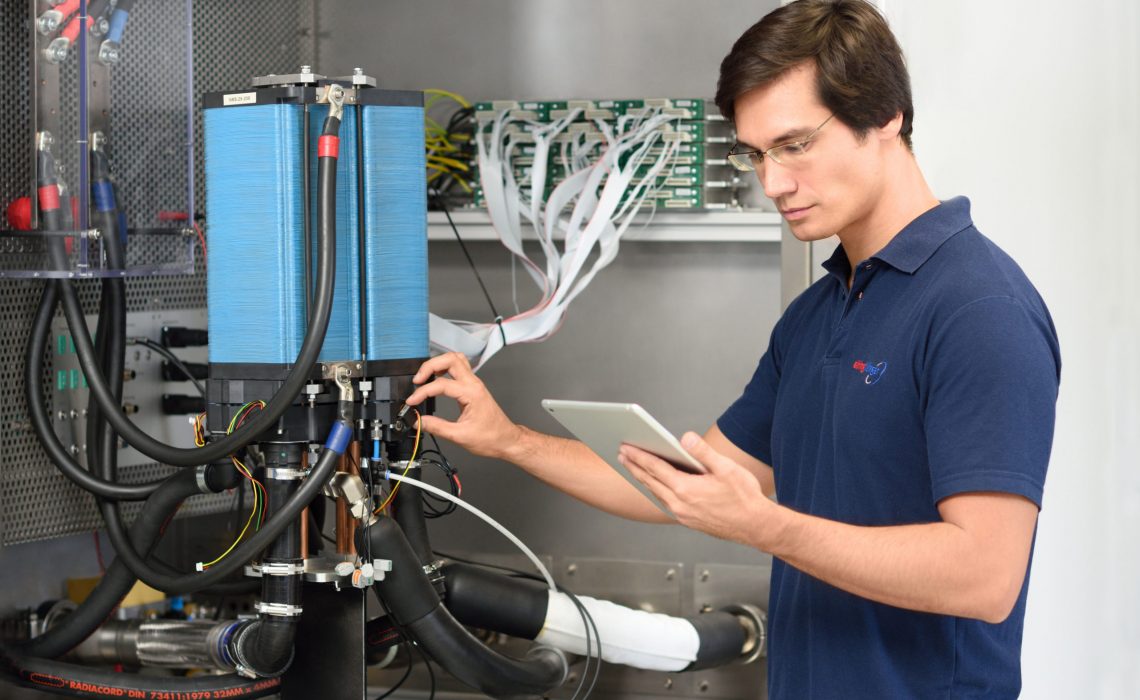The first stack supplied by ElringKlinger includes 260 cells and was tested and configured by zepp.solutions on a rig for the purpose of integrating it into fuel cell systems. As a next step, a passive hydrogen recirculation unit was also supplied by the company. Working on this basis, zepp.solutions then fitted its fuel cell system – including ElringKlinger’s stack and recirculation unit – to a demonstration vehicle developed by the Dutch manufacturer Terberg Special Vehicles; it is used in a terminal tractor for container and material handling in ports and logistics centers.
A second ElringKlinger stack is to be used in the same area of application following the completion of tests by zepp.solutions with regard to downstream system integration. It, too, is to be deployed in a Terberg terminal tractor used for container and material handling in ports and logistics centers. Additionally, ElringKlinger has provided zepp.solutions with a fuel cell stack with 300 cells, including hydrogen recirculation unit. Subsequent to testing, this unit is to be fitted to a water taxi operated in the port of Rotterdam.
The two parties to the contract are looking to pursue their collaborative efforts based on their accomplishments to date and are currently engaged in negotiations with regard to additional fuel cell stacks of a new generation, which are to be supplied to zepp.solutions in the coming years for subsequent integration into fuel cell systems.
The compact stacks are based on proton-exchange membrane (PEM) technology and convert chemical into electrical energy using hydrogen and oxygen.
About Fuel Cell Technology:
Fuel cell stacks are suitable above all for mobile applications with a long range and cyclical operation. Apart from vehicles such as buses and cars, PEMFC stacks can also be used for mobile industrial applications, e.g., in commercial vehicles and fork lift trucks. In addition, the hydrogen-based propulsion unit is also suitable for trains, ships, or aircraft

